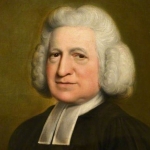for Yehuda Amichai
Though you live in a little country,
crammed and crisscrossed with debris,
the past oppressive many times over—
where you buy your grapes David, pausing,
riding his breath, the old dance urgent
at his body; where you buy your bread
Christ, stumbling, stoops to heavy lumber—
you insist on your own loves and griefs,
on living your own life.
So you love
this city, but mainly as it goes on
living its own life, across its roofs
the lines flapping, not gaudy banners,
but sheets and diapers, pants and slips,
as if rehearsing private pleasures.
And though you know you cannot win,
you play the game with all the skill
and love that you can muster, hoping
to keep it, keep it going, whatever
the fierceness in it, while you learn
the repertoire of your opponent’s wrist,
the repertoire your own commands,
with every stroke surprising you,
as in a woman’s glance the abundance
glinting of her passion stored away.
Those opposing roles, victor, victim
both, when they require re-enacting,
the moon as ever plays the luminous dome
above your god-and-man-scarred rock,
responsive to each nuance of the light
informing it with this, the latest scene.
The sweat you’ve shared between you,
juices drying on your hands and moon-
lit belly, swirls out of the rutted, stain-
stiff sheets a fragrance stronger, more
anointing, than the myrrh, the frank-
incense the magi brought, a gleam
that would eclipse their beaten gold.




















Comment form: